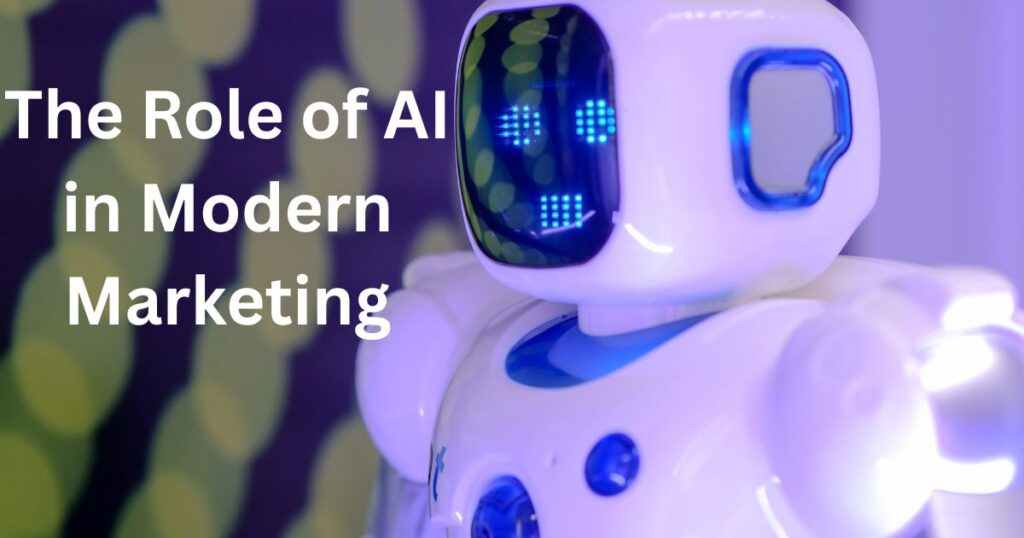How AI Is Transforming Marketing in 2025: Trends, Tools & Tactics
In the fast-paced digital world of 2025, artificial intelligence (AI) is no longer a futuristic concept — it’s the core engine driving modern marketing success. From automating repetitive tasks to delivering hyper-personalized customer experiences, AI is changing the way brands connect with their audiences.
Whether you’re a startup owner or a marketing professional, understanding the role of AI in marketing today is critical for staying ahead of the competition. In this blog, we’ll explore how AI is reshaping marketing, the top tools you need to know, and the key tactics brands are using to thrive.
💡 Why AI Matters in Marketing Today
Marketing has always been about reaching the right people with the right message at the right time. But traditional methods often fall short in delivering the speed, scale, and personalization that today’s consumers expect.
AI bridges that gap by:
- Analyzing massive datasets in real-time
- Automating campaign management
- Improving targeting precision
- Enhancing customer engagement
As consumer behavior shifts and attention spans shrink, AI gives marketers the competitive edge they need to adapt quickly and work smarter, not harder.
🤖 Key AI Technologies Driving Modern Marketing
Understanding the building blocks of AI in marketing helps you make smarter choices. Here are some key AI technologies transforming the landscape:
- Machine Learning (ML): Learns from data to make predictions and improve over time.
- Natural Language Processing (NLP): Enables chatbots, sentiment analysis, and personalized copywriting.
- Predictive Analytics: Forecasts customer behavior, campaign performance, and churn rates.
- Computer Vision: Powers image recognition for visual content marketing and social media analysis.
- Generative AI: Creates content, designs, videos, and more with tools like ChatGPT or DALL·E.
These technologies enable brands to make data-backed decisions and automate complex marketing tasks.
🛠️ Top AI Marketing Tools You Should Know in 2025
Here are some of the most powerful AI marketing tools dominating 2025:
| Tool | Function |
|---|---|
| ChatGPT | Content creation, customer service responses, campaign ideas |
| Jasper AI | Long-form blog writing, ad copy, and email marketing |
| HubSpot AI | Automated CRM, smart email targeting, lead scoring |
| Adobe Sensei | Personalized content experiences and intelligent image editing |
| Salesforce Einstein | Predictive analytics and AI-powered sales suggestions |
| MarketMuse | Content strategy, SEO optimization, and AI-driven keyword research |
These tools reduce manual work, improve content quality, and boost overall campaign efficiency.
🧠 AI-Powered Personalization: Marketing That Connects
In 2025, personalization isn’t optional — it’s expected. Consumers want brands to understand their preferences and respond accordingly.
How AI enables personalization:
- Product recommendations (like Amazon or Flipkart)
- Dynamic email content based on user behavior
- Tailored website experiences based on visitor profile
- Chatbots that adjust tone and suggestions based on past interactions
With AI, brands can create 1-to-1 customer journeys that drive loyalty, engagement, and conversions.
✍️ AI in Content Creation and Copywriting
Gone are the days of spending hours writing blogs, ads, or emails from scratch. AI tools for content generation now help marketers produce high-quality content faster than ever.
Use cases:
- Writing blogs using Jasper or ChatGPT
- Generating SEO-optimized product descriptions
- Creating headlines and A/B test variations
- Producing social media captions based on brand tone
This frees up time for marketers to focus on strategy and storytelling, while AI handles structure and optimization.
📊 Predictive Analytics: Making Smarter Marketing Decisions
AI-powered analytics tools are helping marketers:
- Predict future trends
- Identify high-value customers
- Detect campaign performance issues early
- Forecast ROI
Platforms like Google Analytics 4 (GA4), Salesforce, and HubSpot integrate AI to deliver real-time insights, enabling faster, more confident decision-making.
📈 Real-World Examples of AI in Marketing
Let’s take a look at a few brands using AI with great success:
- Spotify uses AI to personalize playlists like “Discover Weekly,” boosting retention.
- Coca-Cola uses computer vision and AI to analyze social media images for branding opportunities.
- Sephora offers AI-driven chatbots and personalized beauty recommendations, increasing conversions.
These examples show how AI improves customer engagement and brand performance across different industries.
⚠️ Challenges & Ethical Considerations
Despite its benefits, using AI in marketing comes with challenges:
- Data privacy concerns: Marketers must ensure transparency and compliance with regulations like GDPR.
- Bias in algorithms: AI can unintentionally reinforce stereotypes or exclude certain groups.
- Over-automation: Too much reliance on AI can lead to loss of human touch.
Being aware of these pitfalls allows marketers to implement AI ethically and responsibly.
🚀 Future of AI in Marketing: What to Expect Next
Looking ahead, the future of AI in marketing will include:
- Voice-based marketing through AI voice assistants
- Hyper-personalized video content
- Emotion detection for more empathetic campaigns
- AI-driven storytelling tailored to user mood and history
Marketers who embrace AI will continue to see exponential growth in their outreach, performance, and innovation.
📌 Final Thoughts
AI is not just a marketing trend — it’s the new foundation for building scalable, smart, and deeply engaging marketing strategies. Whether you’re running paid ads, writing blog posts, or building customer journeys, AI can help you do it better, faster, and with greater impact.

